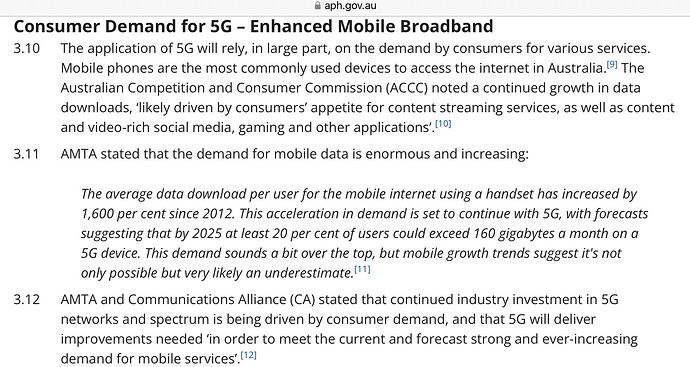Bill Gates once famously declared to the world “I don’t know why anyone would need more than 640Kb of memory”. It was around the time Microsoft launched MS-DOS. The computers his “OS” was loaded on ran twin 360Kb floppy disks.
The bare minimum PC (Chromebook) today has ~4 thousand times the memory (his "640KB was actually 1Mb), and 450 thousand times the directly connectable storage.
If you live on your own and need monitored medical equipment installed, you might want reliable network access.
If you work from home, you may need to upload large documents. I had the joy of trying to upload a 20MB file for a solicitor to lodge with the Supreme Court for a court case where I was an expert witness. The court required it be lodges by 9 am, and the solicitor needed to review it prior to lodging. I was still stuck on unreliable FTTN. I finished the last edit at 10:30 pm. It took until 4am to get it uploaded. The problem was that there was signal attenuation on the old wires between the house and the node, which resulted in multiple packet failures; retries and time-outs and so on. The software decides
You would not have wanted to hear the language that came from me. I had a fibre connection connected to the outside wall of my house, but that’s another story.
Since the fibre was connected, I’ve had very few problems, and I run over configured to minimise contention.
The internet is like the road network, except that the performance is only as good as the weakest link. Apart from that, has single lane roads and multi-lane roads (frequency division). It has traffic lights (time division), and the traffic queues up. If you live on a single lane dirt road that’s subject to flooding, good luck getting out if you need to. The freeway you want to get to might might be flowing, but you might not get there if it’s wet.
My 20 MB file was like a group of cars that needed to get down a dirt road that was flooded. The big 4WDs could get across, but the drivers know the smaller cars won’t make it, so they phone the house and tell them not to bother coming yet. They turn back and try again later, because they need to keep together as a group. Eventually the flood drops enough, and the whole group can drive through. Once they hit paved road on high ground, they’re fine was fine.
